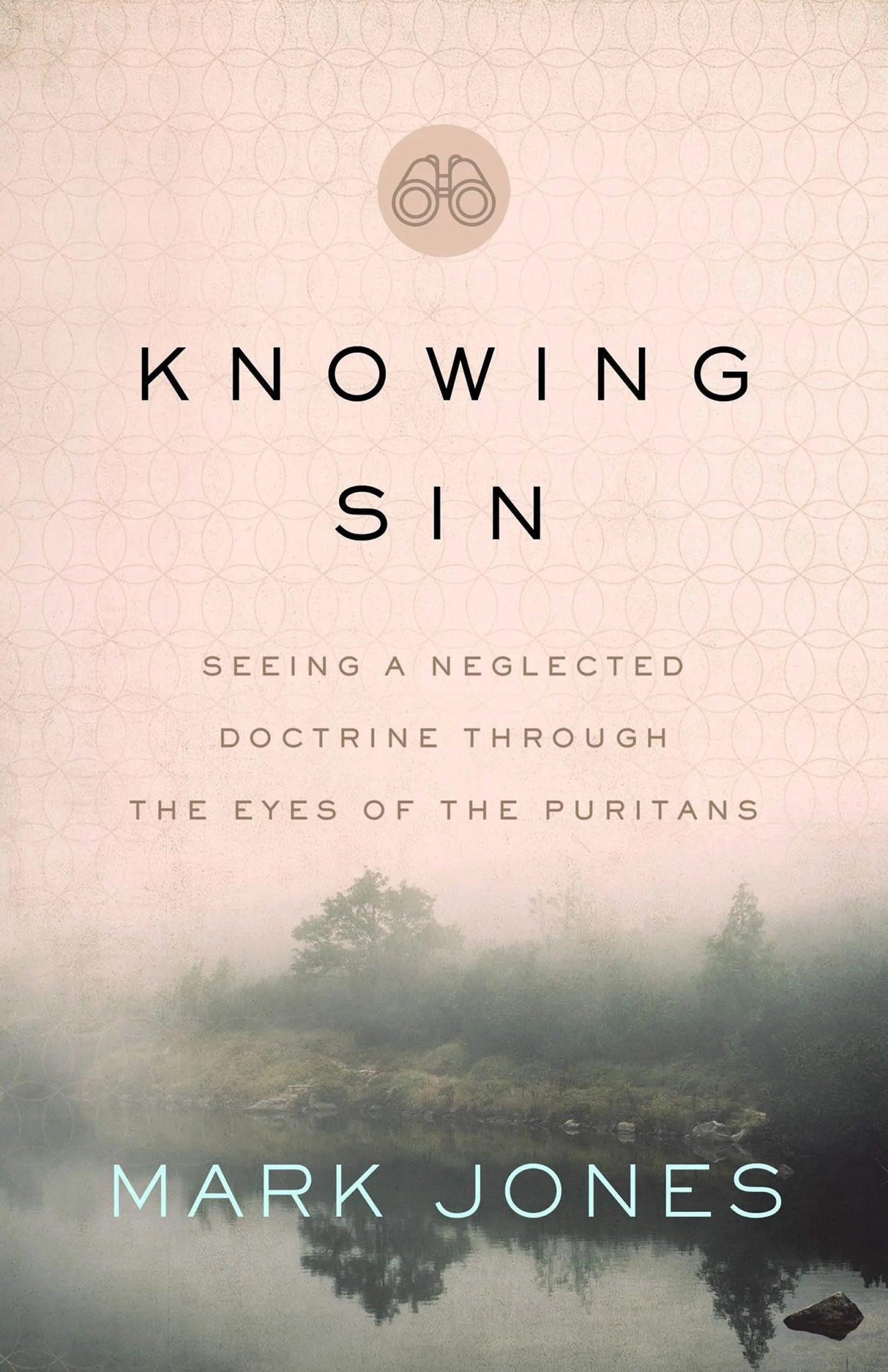In the 6th century AD, a Chinese general and strategist said:
If you know the enemy and know yourself, you need not fear the result of a hundred battles. If you know yourself but not the enemy, for every victory gained you will also suffer a defeat. If you know neither the enemy nor yourself, you will succumb in every battle.
Such is the case when it comes to the Christian’s warfare with sin. In Knowing Sin, Jones argues that if we aren’t intimately acquainted with our opposition, we will fail to grasp the gravity of the battle we’re engaged in (Ephesians 6:12). Conversely, if we devote time and energy to grasping the true origin, nature, and consequences of sin, we will be equipped and armed to face the temptations of the world, the flesh, and the devil.

Knowing Sin: Seeing a Neglected Doctrine Through the Eyes of the Puritans
Mark Jones
Knowing Sin: Seeing a Neglected Doctrine Through the Eyes of the Puritans
Mark Jones
The first rule of combat is: know your enemy.
We don’t talk a lot about sin these days. But maybe we should. The Puritans sure did—because they understood sin’s deceptive power and wanted to root it out of their lives. Shouldn’t we want the same?
In Knowing Sin, Mark Jones puts his expertise in the Puritans to work by distilling the vast wisdom of our Christian forebears into a single volume that summarizes their thought on this vital subject.
Yet, this book is not just about understanding sin. Jones presents the true darkness of sin in order to shine forth the true brilliance of the gospel. For unless we recognise how desperately sick our hearts are, we shall never grasp the purity and grandeur of our Saviour Jesus Christ.
Unless we recognise how desperately sick our hearts are, we shall never grasp the purity and grandeur of our Saviour Jesus Christ
Here are three reasons Jones’ book is critical for Christians today.
1. A Biblical, Not Psychological, Approach
Jones implicitly highlights how sin has been interpreted and understood in secular thinking. This lens of atheistic materialism has even infiltrated the minds of many believers, as we have been led to think about sin in unbiblical terms. Jones explains:
To merely describe sin as ‘missing the mark’ is a gross injustice to the actual vocabulary of the Bible and the nature of sin… Sin is theocentric (Rom. 1:18-32), and thus illegal (Rom. 3:20). In this sense, it is anti-relational as we, the offenders, rise up in enmity against God the offended. (52)
Thus, the greatest manual is not any secular technique or publication, but the Bible. Jones highlights how the Bible honestly, deeply, and simply explains the truth about the horrors of our sin and our rebellion against God. By exposing us to the hopelessness of our human condition, he directs us to the One who offers hope for a transformed heart and life.
2. God’s Grace is Greater than our Sin
Jones recognises that only those who recognise something of the heinousness of their sin will search for the Saviour. Stripping away any vestige of self-righteousness that may remain in us, Jones leads us to a place of desperation where we recognise Jesus is the only one who offers healing and restoration. It is only with empty hands that we can experience the joy and freedom which comes when we daily approach the throne of grace (Hebrews 4:16). He writes, “just as there is a rich vocabulary for sin, there is an even richer one for grace.” (60)
Only those who recognise something of the heinousness of their sin will search for the Saviour
Jones reflects upon the kindness of God:
As the hymn “Grace Greater Than Our Sin” testifies, this is a “marvellous, infinite, matchless grace, freely bestowed on all who believe.” Indeed, it is a “grace that is greater than all our sin,” even the worst. (183)
Jones also shows how understanding sin humbles us as we engage with non-believers. First, we recognise that we too were once in need of salvation, and so approach evangelism humbly. We are one beggar telling another beggar where they found bread.
Second, if it were not for the restraining, gracious hand of God, the sinful thoughts and attitudes of our hearts would have manifested in fleshly behaviours towards others. Thus, without minimising the wickedness of others, Christians understand that the only reason we have not sinned more grievously is due to the grace of God in holding us back. There but for the grace of God go I.
3. A Treasure Trove of Puritan Quotes
Jones understands the value of learning from the Puritans. The Puritans studied the deepest recesses of the human heart, and thus had a comprehension of sin that is foreign to many contemporary Christians. As a result, the gospel was made sweeter, as they expounded the grace of God through the victory won for believers through Jesus Christ.
Drawing on a range of Puritans from John Owen and Thomas Goodwin, to Jeremiah Burroughs and Stephen Charnock, Jones makes the Puritans accessible to the contemporary Christian. Jones excavates and presents their pithy quotes, lucid word pictures, and rich Biblical exegesis—profound gifts to us.
Jones excavates and presents their pithy quotes, lucid word pictures, and rich Biblical exegesis—profound gifts to us.
For instance, Jones quotes Thomas Brooks:
The higher the springs of godly sorrow rise, the higher the tides of holy joy rise. His graces will flourish most, who evangelically mourns most. (79)
Knowing Sin is worth buying for its rich compilation of Puritan quotes. The footnotes alone make it an invaluable resource for all Christians to own.
The Bottom Line
Unlike many contemporary Christian books, Jones’ work is not cliché. Quite the opposite, Knowing Sin is the product of countless hours of thoughtful meditation and a pastoral heart. Jones makes the biblical teaching on sin both accessible and digestible.
Whether you are currently feeling enslaved to the fangs of sin or recognise the need to prepare yourself for the inevitable battles that lie ahead, this book is for you. It will challenge, expose and rattle you. Jones leaves us bare before our holy God, revealing just how desperately wicked we are.
Ultimately, it is only when we recognise the true nature of our sinful estate that we can savour and treasure the height, depth, length, and breadth of God’s grace for us. For this reason, Knowing Sin will likely be a crucial resource for Christians for years to come.















